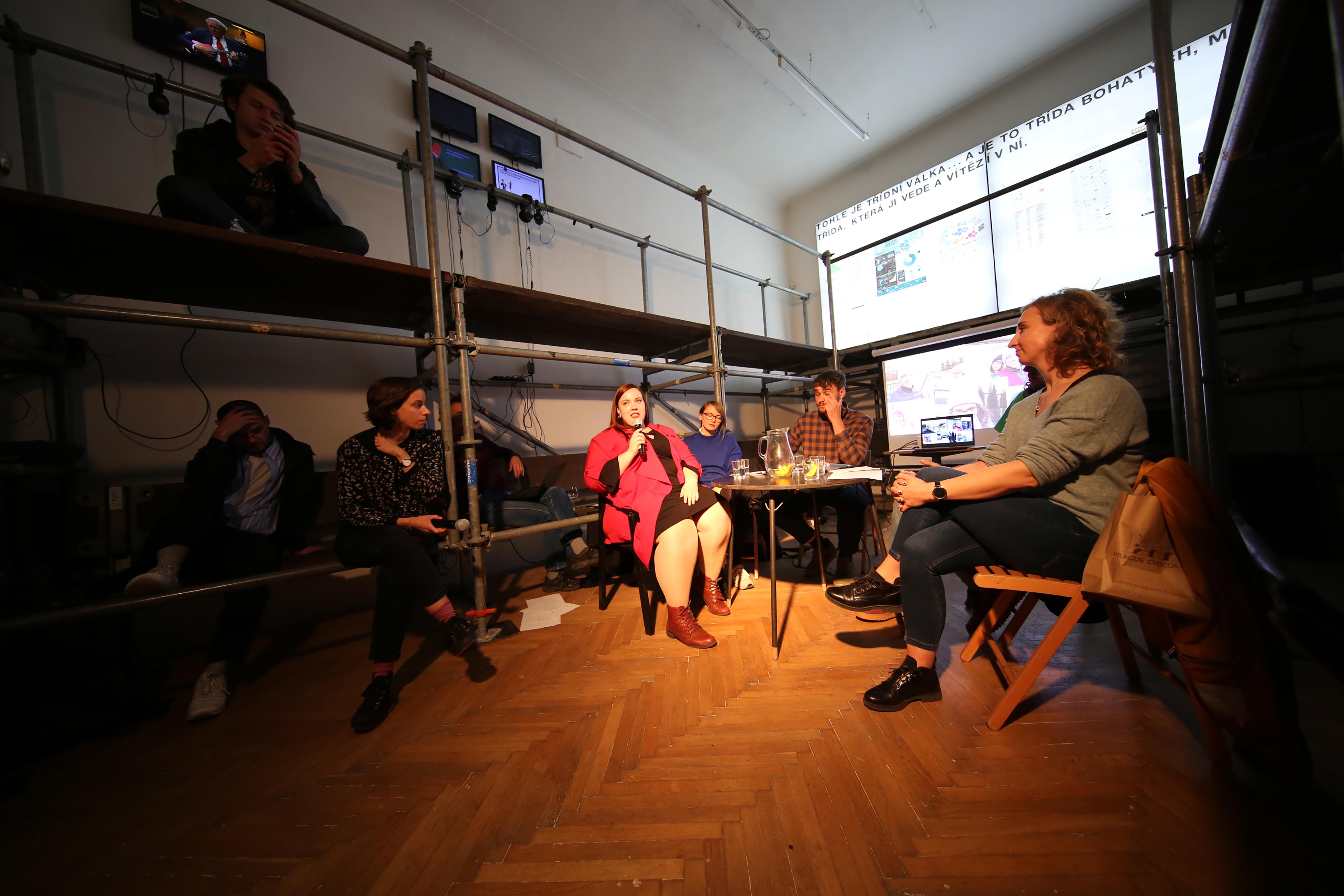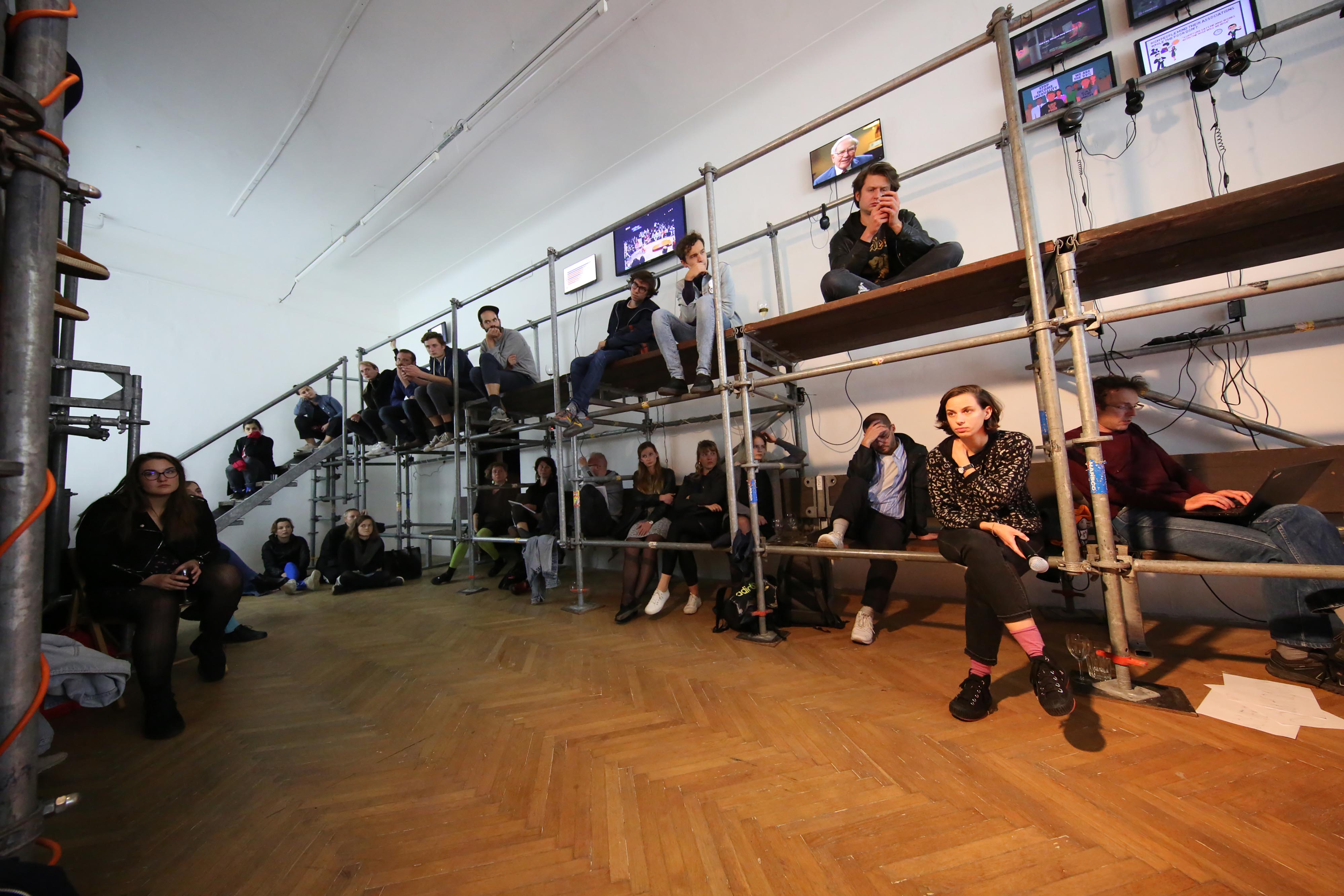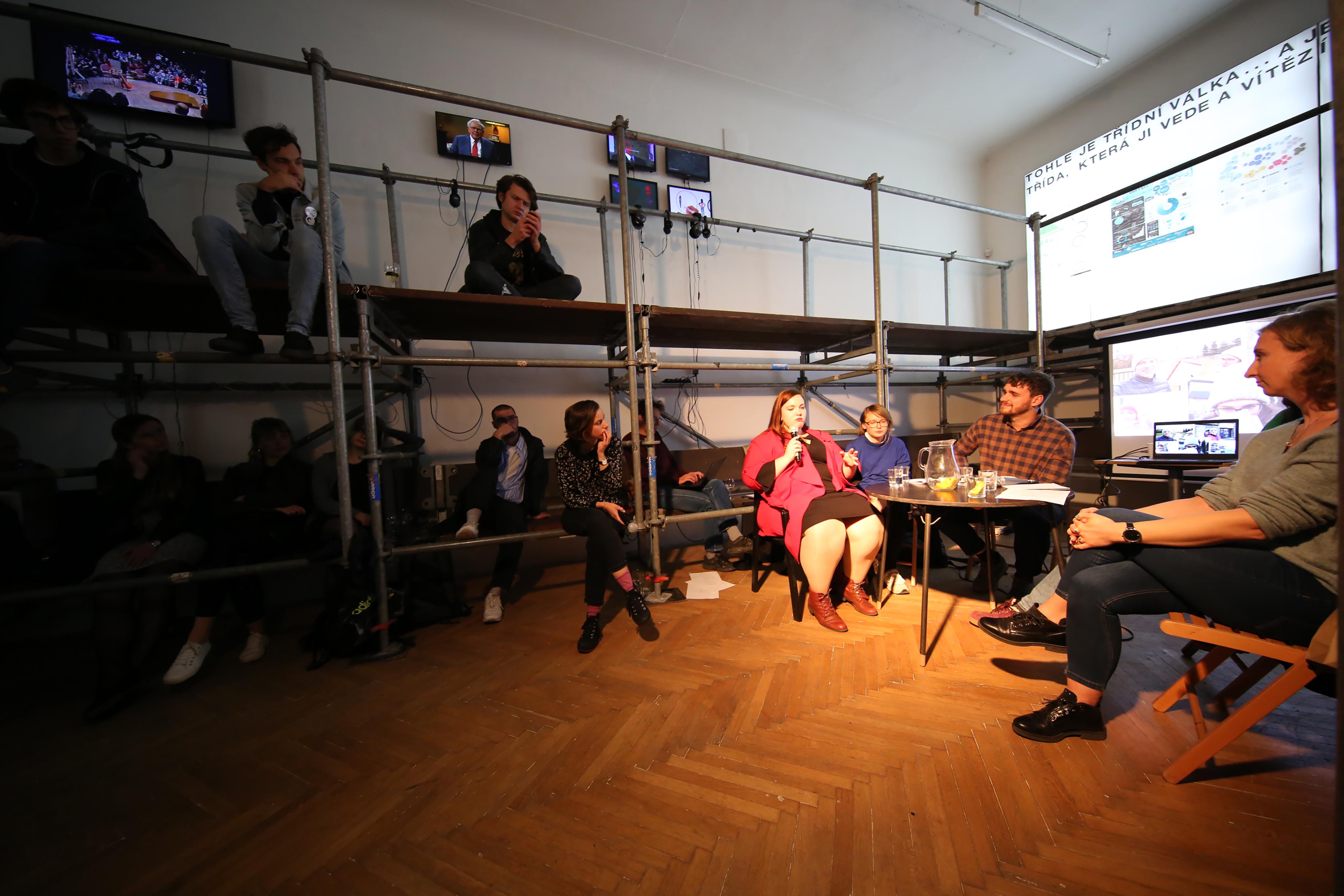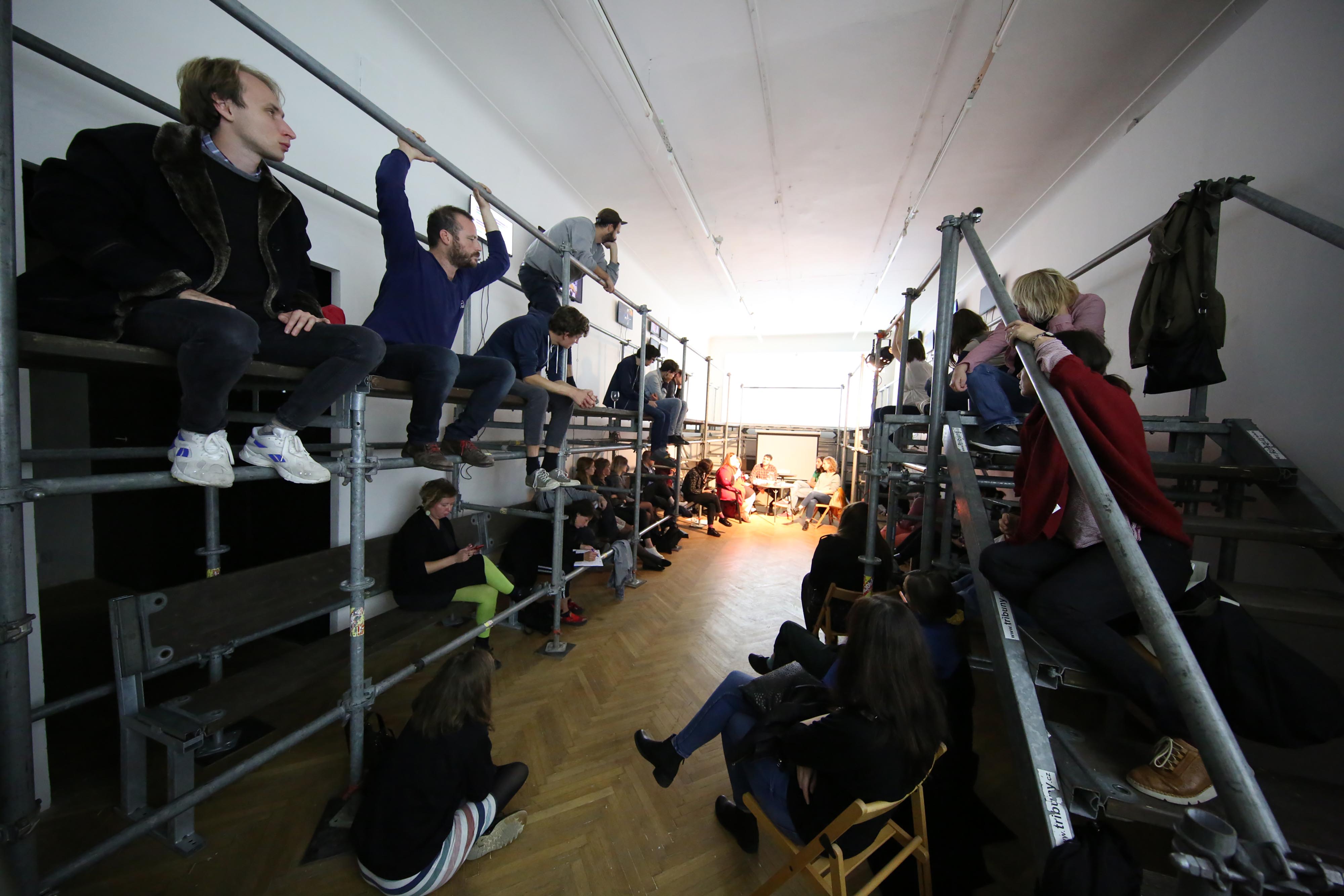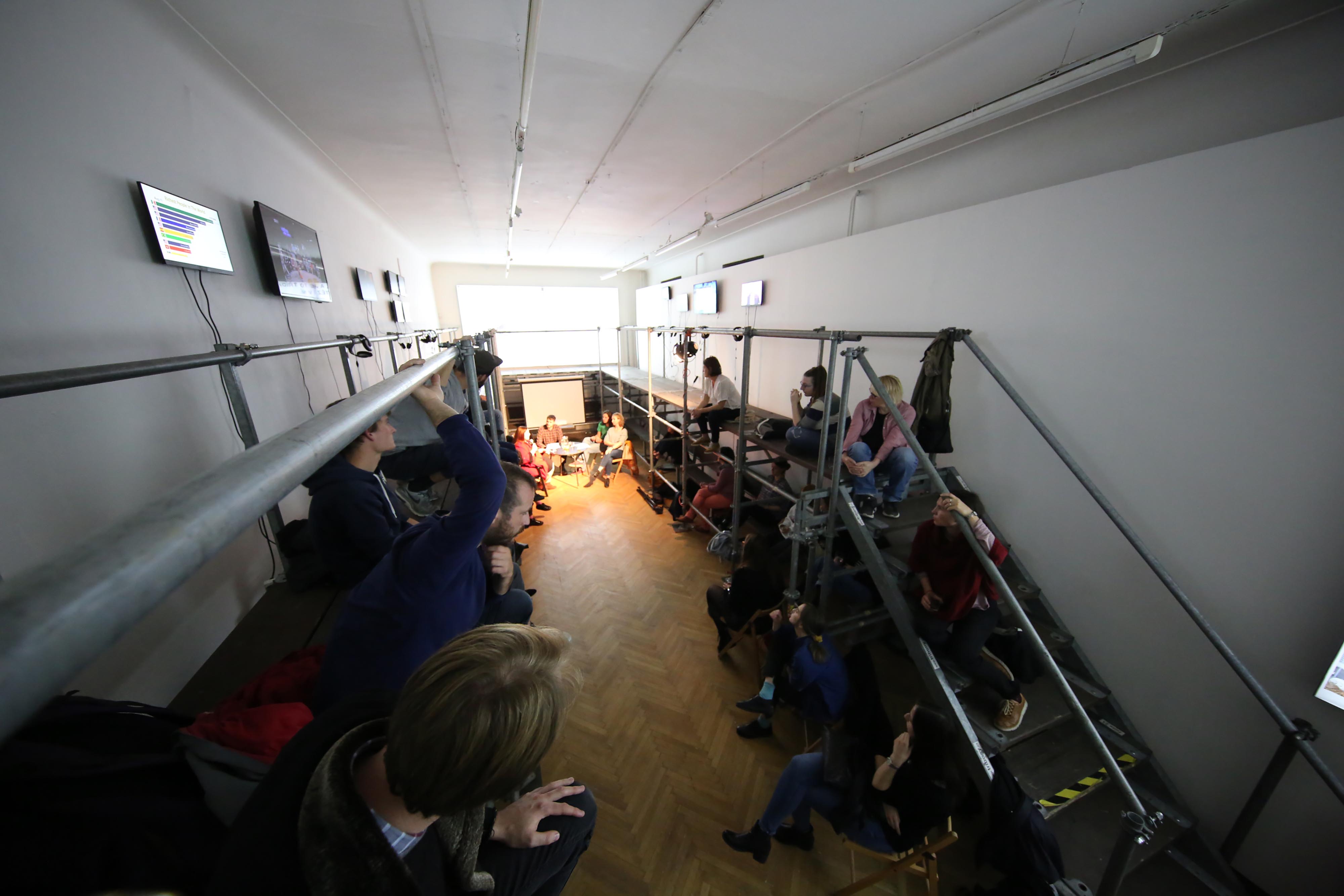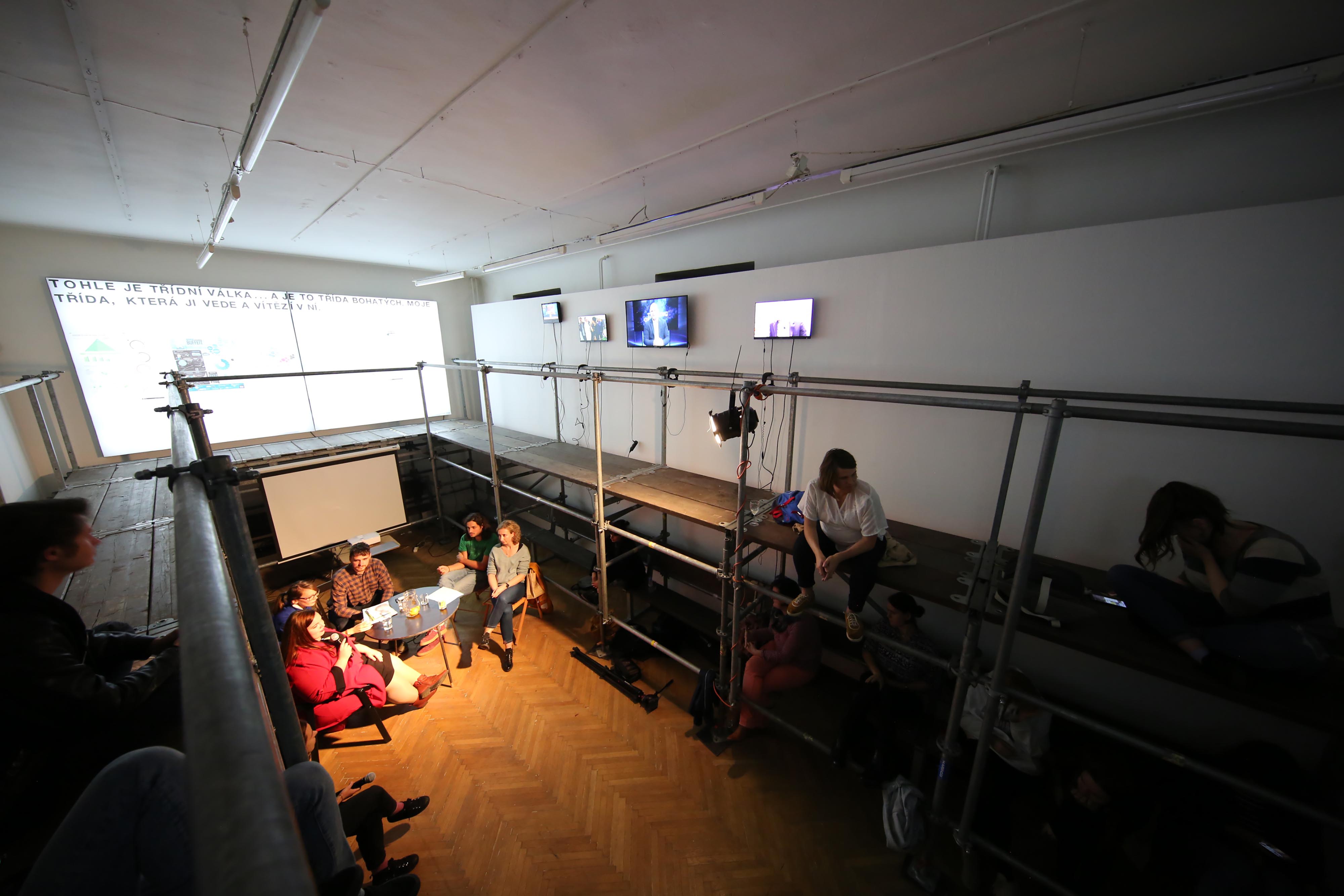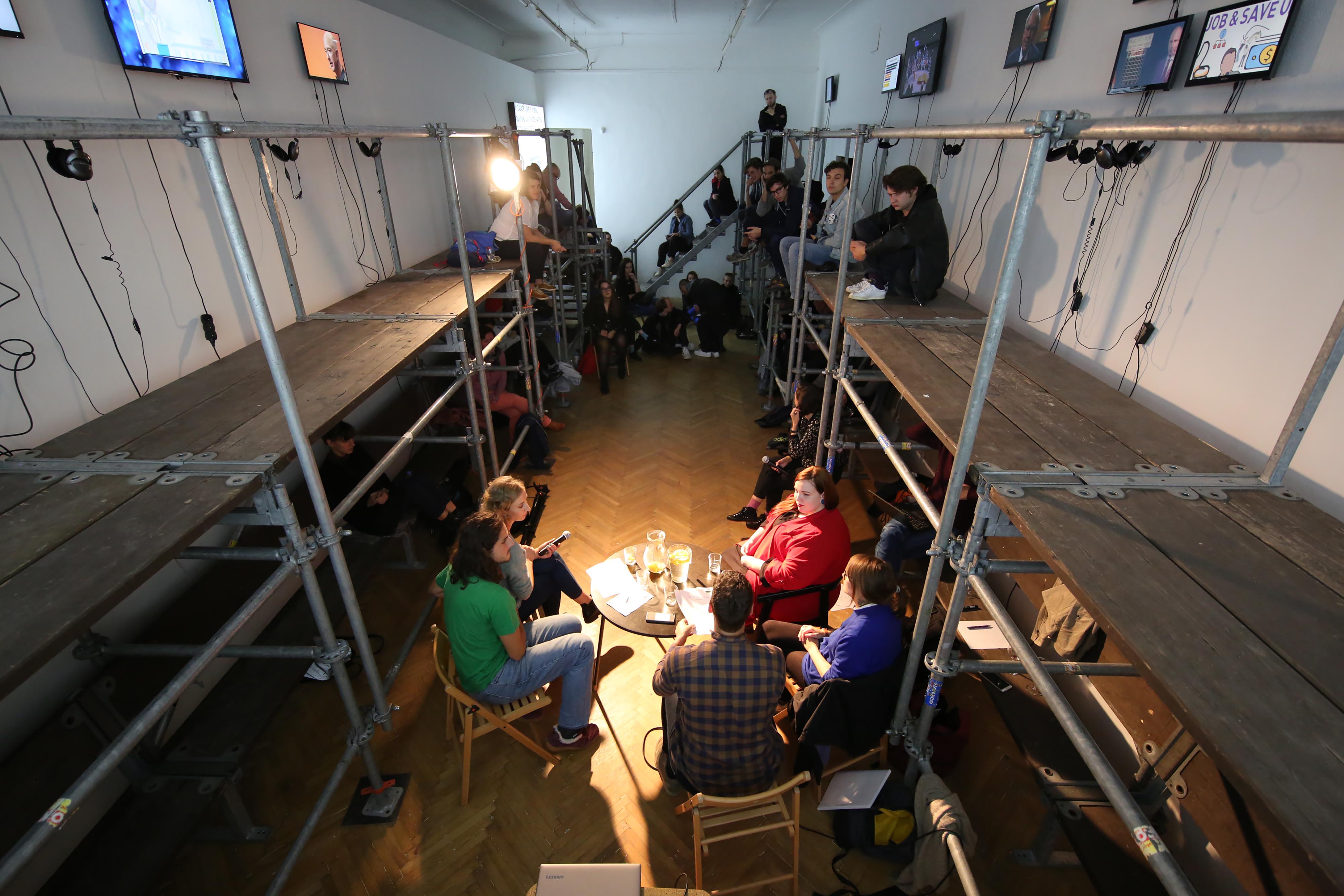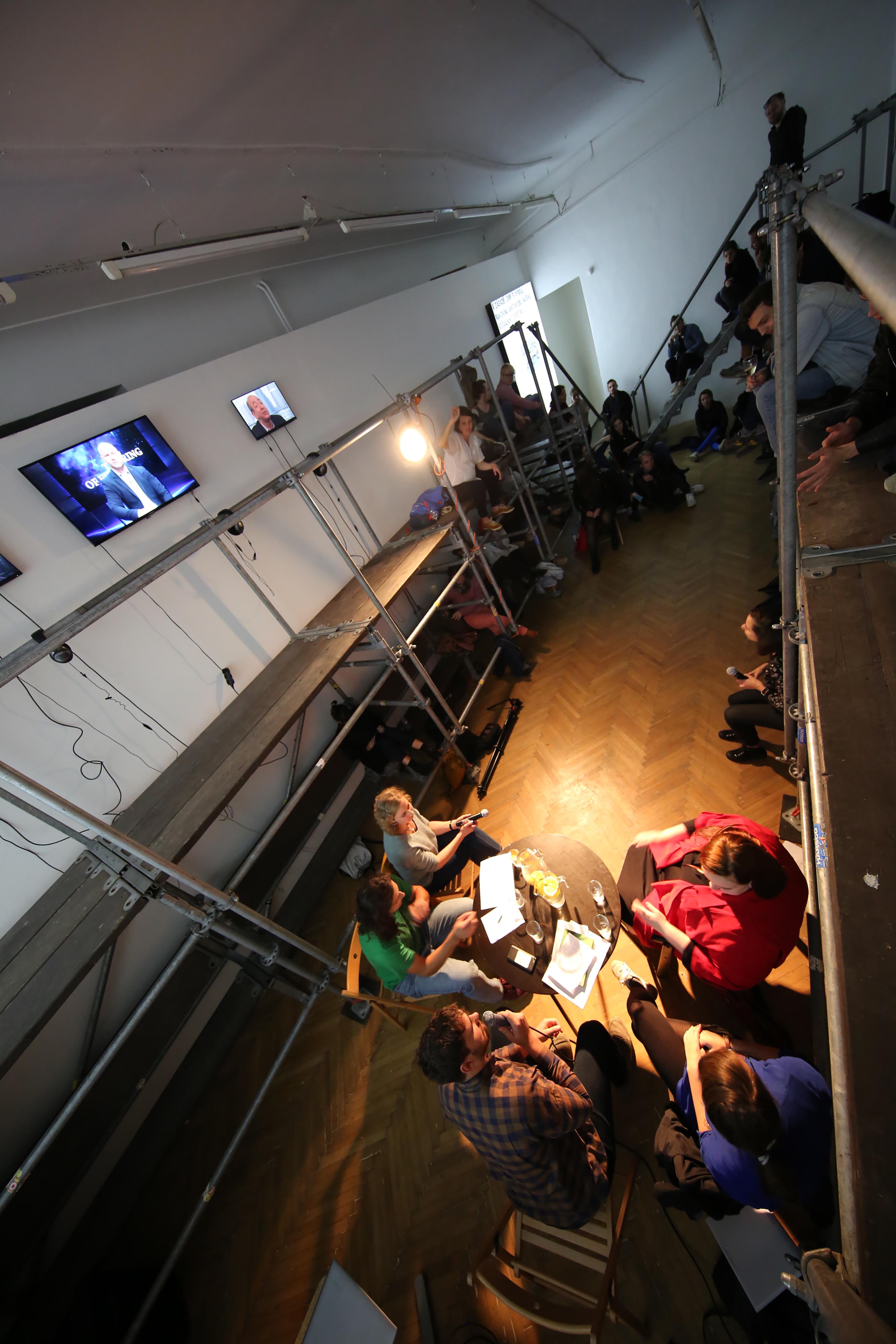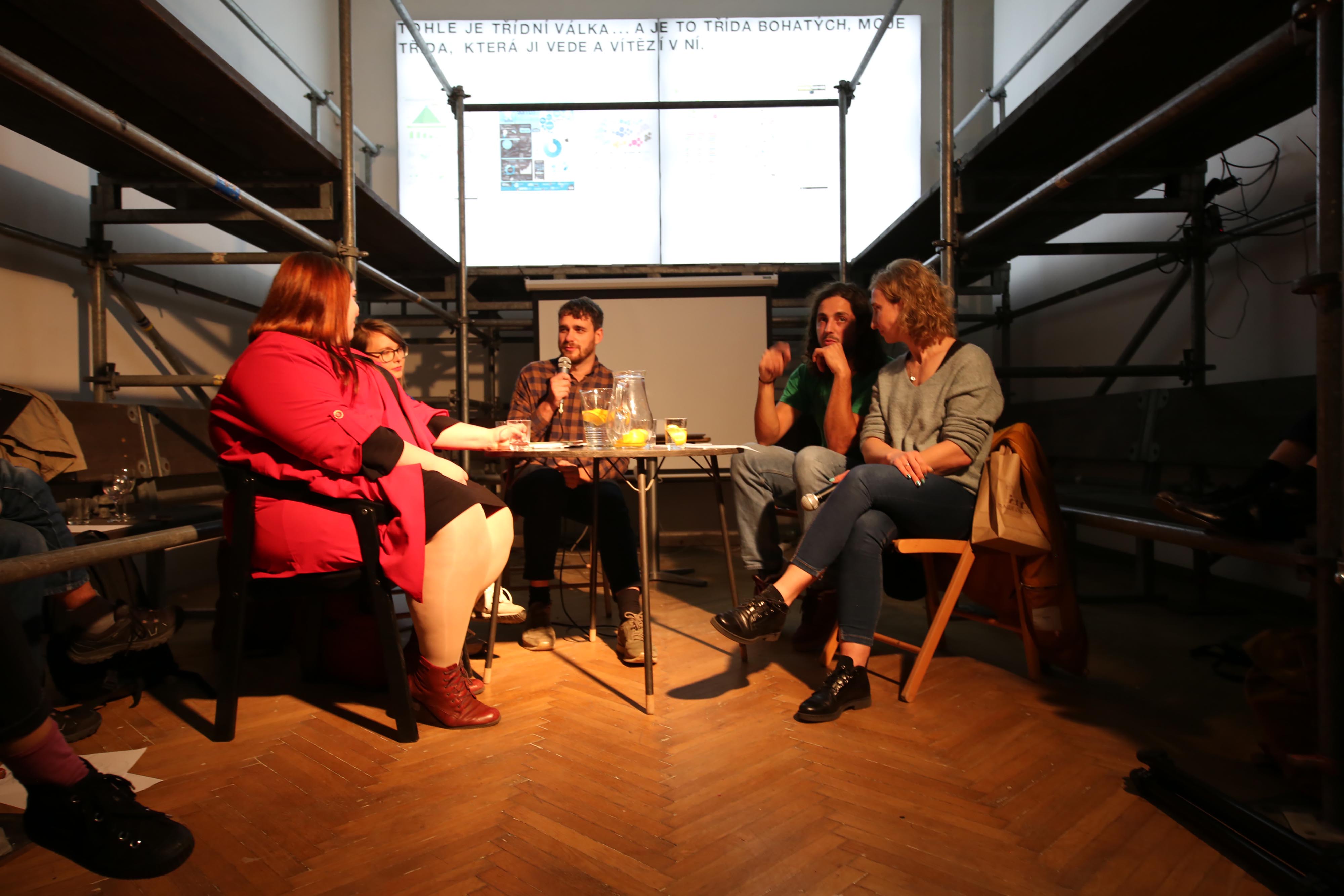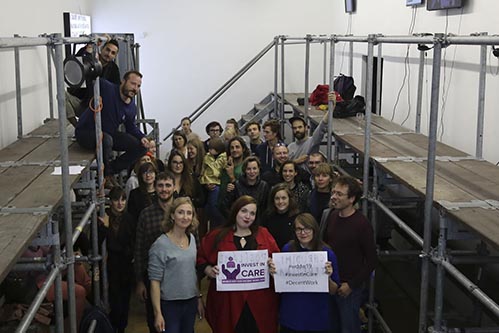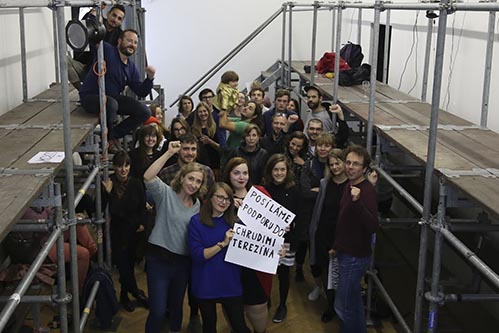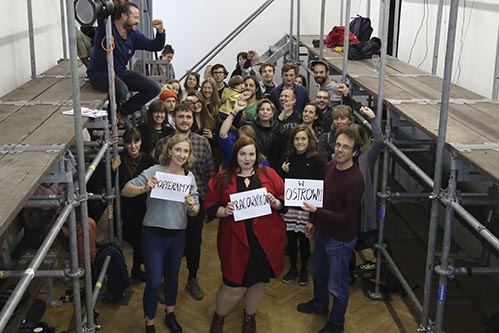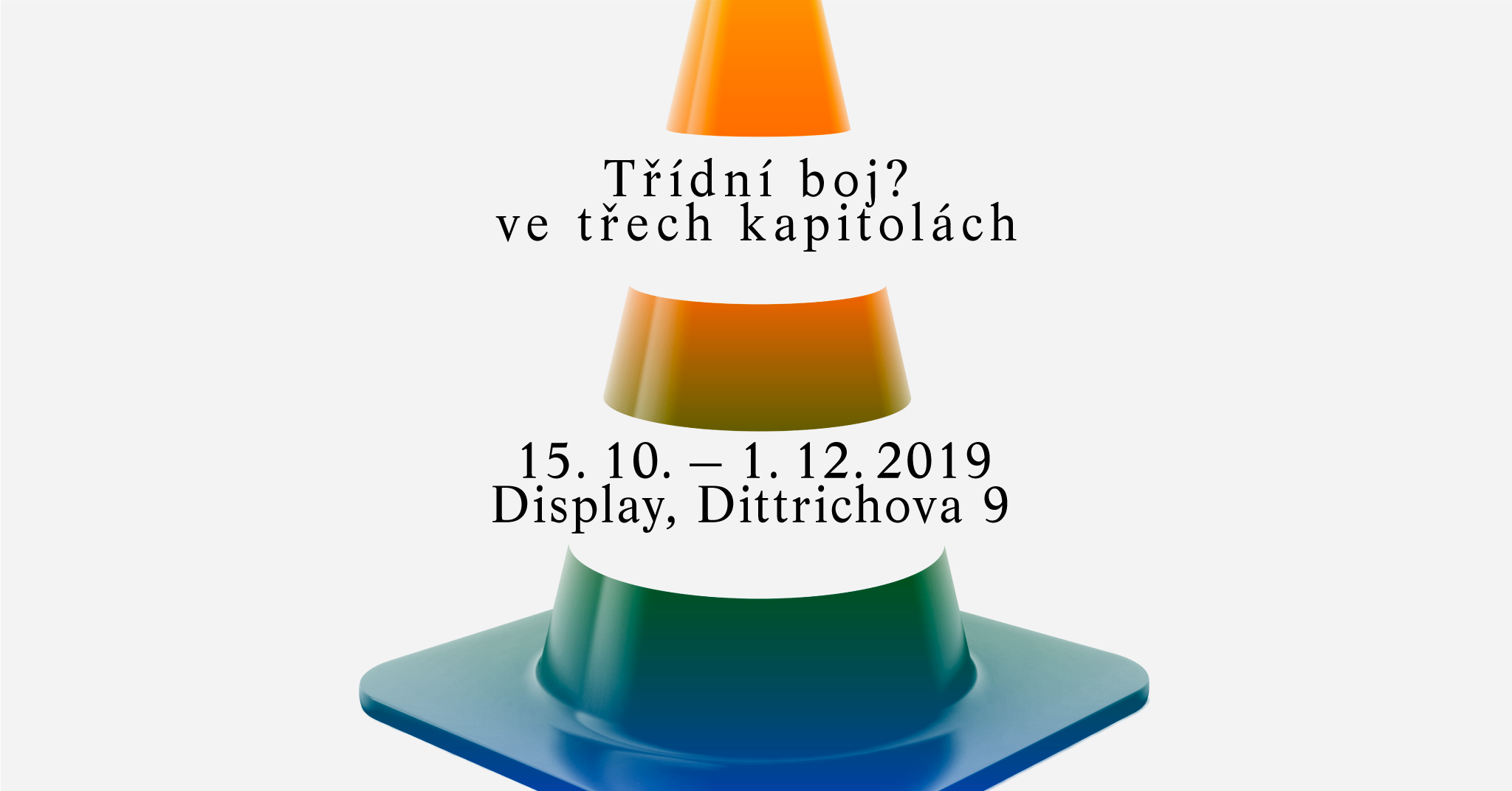Class Struggle? in three chapters
✨ Class Struggle? in three chapters
✨✨Opening: 15.10.2019
✨✨✨The exhibition will last till: 1.12.2019
Chapters:
👍15.10. Decent care, decent work with Václav Drozd and his guests: Anna Bacia (therapist) and Valerija Karpova (care worker)
👍29.10. Comenius online: Social classification, separation and unification in the stream of cultural capital with Tereza Stöckelová and her guests: Václav Bělohradský, Johana Chylíková (Institute of Sociology of the Czech Academy of Sciences), Tomáš Dvořák (PAQ a Faculty of Social Sciences) and Kateřina Nedbálková (Faculty of Social Studis MU).
👍12.11. Privatization and the birth of elites: The Czech experience with Tomáš Samek and his guests: Ondřej Lánský (sociologist), Milena Bartlová (art historian), Lenka Zlámalová (journalist)
Ten years ago, billionaire Warren Buffet said in The New York Times that “there’s class warfare, all right, but it’s my class, the rich class, that’s making war, and we’re winning.” It seems that the class that has developed a class consciousness in the 21st century is not the notorious proletariat, but the richest of the rich. After years of prosperity, the rest of society has either been soothed into believing that the concept of social class is now obsolete, or it has been atomised, silenced, and ostracized to such an extent that it has not managed to articulate fast enough its class consciousness vis-à-vis the quickly changing conditions. Although most sociologists describe and structure today’s world through the concept of class structure, few people will readily identify with a particular class, with the exception of the dying middle class. Even if there are occasional attempts to do so, it is unclear whether such an awakening has any political potential in a time of atomised society.
So how are we to define today’s class society? Who are its actors? Why and how do they fight one another, and why do most of us end up losing anyway? What has to happen for us to feel like we belong to a class, and to be able to orchestrate its political mobilisation?
The performance-cum-discussion project Class struggle? looks at the complex social and class relations in today’s society in three subject-specific chapters. Each chapter takes place in a specific architectonic configuration and is accompanied by a topical visual element.
The project was kindly supported by: Ministry of Culture of the Czech Republic, Municipality of Prague and Pra
